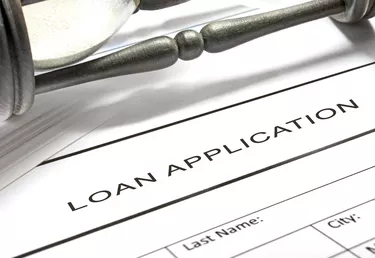
A conditionally approved loan means an underwriter has tentatively agreed to fund your loan, provided you meet specific conditions, usually related to documentation. While the term is used most often in mortgage lending, conditional approval also can play a role in auto financing, home equity lines of credit, and even credit card approval.
Different Types of Pre-Approval
Video of the Day
If you're shopping for a home or auto loan, one of the first things you'll want to do is meet with a bank loan officer to determine how much you qualify to borrow and what your interest rate will be. This is based, in part, on your earnings, your debt and your credit score. It's a good idea to bring along key information for this initial meeting, such as pay stubs, tax returns, bank statements and a list of debt obligations, like credit cards and loans.
Video of the Day
Pre-Approval
After a loan officer reviews your financials, checks your credit and verifies your income, he can give you a pre-approval letter. This states that based on information provided, you are eligible for a loan up to a specified amount. Such a letter can give you a little extra edge when you start looking at homes or vehicles, because you know how much you have to work with and the seller knows you've officially started the financing process.
Conditional Approval
Conditional approval is a more in-depth process than pre-approval, and therefore, carries more weight. To be conditionally approved, a loan underwriter goes through your financial package and digs a little deeper to confirm its accuracy. The underwriter is the person who ultimately approves or denies a loan, so his oversight and number crunching has more authority than a loan officer. When you're granted a conditional approval, it essentially indicates that based on your current financial situation, the loan is approved -- provided you meet one or more conditions and that your financial circumstances don't change.
Warning
Conditional approvals usually carry an expiration date.
Types of Conditions
When an underwriter puts conditions on your final loan approval, it's usually related to documentation or paperwork. For example, you might be asked to explain a large deposit or withdrawal that appears on a bank statement, or provide a profit-and-loss statement if you're self-employed. The loan also can be conditioned on the results of an appraisal if you're buying a home.
Additionally, a condition may be that your financial picture doesn't change dramatically. For example, if you go out and buy a new car, default on a credit card or lose your job, it can change your circumstances to such a degree that your conditional approval is revoked.